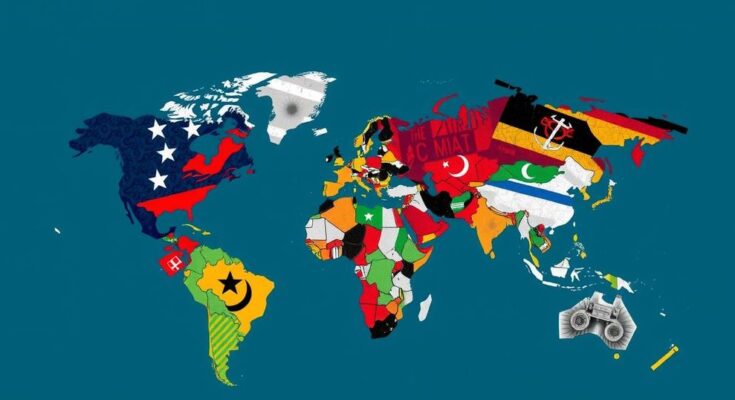The U.N. human rights chief warns of a dangerous global moment as conflicts intensify and international laws are increasingly disregarded. Notably critical of Gaza’s humanitarian crisis and conflicts in Ukraine, Sudan, and beyond, he calls for renewed respect for human rights to prevent further atrocities and civilian suffering. The necessity of accountability in wartime actions is emphasized to stem the erosion of established human rights protections.
In a stark warning, the U.N. human rights chief, Volker Türk, declared the world is teetering on the brink of chaos, where the fundamentals of international law are increasingly disregarded. He highlighted escalating conflicts and rampant violations of humanitarian laws that have become normalized in various global hotspots, including Gaza, Ukraine, and Sudan, among others. These alarming trends pose a grave threat to human rights and the safety of countless civilians, challenging the very structures established to prevent atrocities. Türk pointedly criticized Israeli authorities for the dire humanitarian situation in Gaza, citing catastrophic hunger levels among Palestinians and reminding that starvation of civilians under wartime constitutes a war crime according to international law. Despite assertions from Israeli officials that their humanitarian efforts are comprehensive, Türk painted a contrasting picture of stalled aid, only trickling into besieged areas as military actions continue intensifying. As Regional tensions soar with military confrontations in Lebanon and Gaza, Türk warned of a potential wider conflict that could ensnare millions and devastate human rights further. He lamented the normalization of civilian casualties and called for urgent restoration of respect for human rights before it spirals into deeper humanitarian crises. \n In other conflict areas, the repercussions of prolonged violence are palpable. In Ukraine, after nearly three years of conflict, human rights violations continue to surmount. Sudan faces staggering displacement and hunger due to internal strife, while Haiti battles rampant gang violence, leading to thousands of deaths and injuries. Türk also condemned ongoing atrocities in Myanmar, emphasizing the need for global accountability in respecting human rights, which he claims is vital for ending these devastating conflicts.
At a time when conflicts are proliferating worldwide, the U.N. human rights chief’s statements highlight an urgent need to reflect on humanitarian laws and human rights protections. Following decades of international frameworks aimed at preventing atrocities, the significant backsliding of these protections raises alarms about future conflicts and civilian safety. The call to action stresses the importance of accountability and adherence to international laws to prevent further erosion of human rights globally.
The U.N. human rights chief’s urgent call underscores an alarming trend where international laws protecting human rights are being increasingly ignored amidst ongoing conflicts. As war drags on in multiple regions, the repercussions on civilian life become dire. To safeguard humanity’s future, a collective re-commitment to uphold human rights and humanitarian principles is essential in the face of growing global instability.
Original Source: abcnews.go.com



